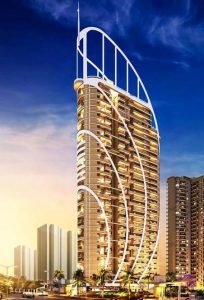More often than not, when a “bona fide” proprietor of the trademark (I use the term “bona fide” rather loosely here) finds unauthorized use of their mark by a third party, the first step taken (often) is to send the other party a legal notice. While some legal notices sent/received are convoluted and packed with legal jargon, some are brief and get the message across. A legal notice simply outlines the rights of the sender (“bona fide” proprietor) and cautions the infringing party to refrain from unauthorized use of the intellectual property. Legal Notices are also a preferred method of bringing the other party to the table for negotiation and quite often, they are effective. However, this is a slippery slope as we now know thanks to the case of Designarch Consultants Pvt. Ltd. & Anr. v. Jumeirah Beach Resort LLC [I.A. No. 7792/2020 in CS(COMM) 366/2020]
The Delhi High Court granted an ad interim injunction which restrained the Defendants (Jumeirah Beach Resort LLC) from extending threats to the Plaintiff (Designarch Consultants Pvt. Ltd. & Anr.) in relation to the trademarks in question and the design of the buildings.
The Plaintiff is in the construction business and also the Registrant of the trademark BURJNOIDA in class 37 claiming use from December 24, 2010. The Plaintiff was in the process of constructing a tower by the name “BURJNOIDA” and also owned the copyright for the shape of the building. The grievance of the Plaintiff began when the Defendants issued a legal notice on August 13, 2020, claiming infringement of its rights in the trademark “BURJ AL ARAB” and its copyright in the unique shape of the building. The Plaintiff then approached the Delhi High Court seeking an injunction against the Defendants restraining them from initiating groundless threats of legal proceedings for trademark infringement/passing off. It is also noteworthy that the Defendants neither have a presence in India nor do they own registration in class 37 in India for any trademarks.
The Plaintiff’s arguments against such allegations were:
- With respect to the trademarks: The Plaintiff argued that the word “BURJ” is a dictionary word meaning “tower” and hence is public juris. Hence, the Defendants cannot claim monopoly over the same. Additionally, the marks themselves were very different from each other – “BURJNOIDA” & “BURJ AL ARAB” hence there would not be any infringement or passing off. Further, the mark “BURJNOIDA” is a fanciful and arbitrary mark in India.
- With regard to the shape of the buildings: The Plaintiff argued that the shapes of the buildings are very different as illustrated below and the shape of the Defendant’s building is not unique and stated that there are multiple other buildings with similar shapes.


The Hon’ble Delhi High Court held that the Plaintiff had made out a prima facie case in its favour and granted an ex parte ad interim injunction that restrained the Defendants from extending threats to the Plaintiff till the next date of hearing. The Hon’ble Court also instructed the Defendants to give the Plaintiff a notice of 7 days prior to initiating infringement proceedings.
The interesting consequence of this injunction would be the fact that IP practitioners now have to rethink their advice on strategies while dealing with infringers. As mentioned earlier, legal notices have been the go-to option to initiate negotiations with the infringer and are very often sufficient in safeguarding the interests of the bonafide proprietors. Additionally, legal notices provide a strong foundation and portray the efforts taken by the aggrieved party when a suit for infringement is filed in Court.
Will this order however change how often legal notices are perceived? Did the lines between caution and threat get more blurred? Will more recipients of such notices hurry to Courts seeking relief rather than sitting at the negotiation table? We will have to simply wait and in the meanwhile, tread extremely carefully while advising the client on sending legal notices.
Editorial Staff
Editorial Staff at Selvam and Selvam is a team of Lawyers, Interns and Staff with expertise in Intellectual Property Rights led by Raja Selvam.
Start-up tips: Employment Agreements – Intellectual Property Clause Simplified
My first job was at a start-up company – It was a part time job during law school, and I was working for a company that conducted creative theme…
